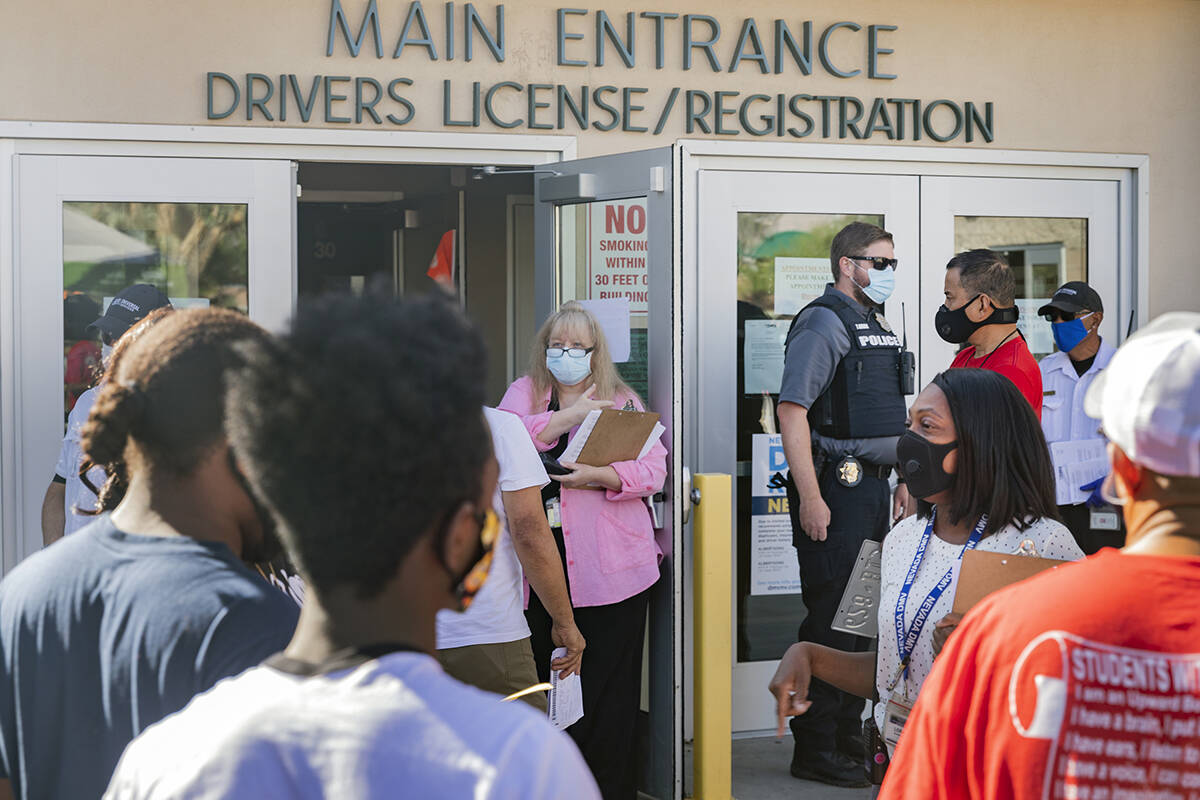EDITORIAL: DMV finds a way to decrease convenience, service
You may not have thought it was possible for the DMV’s customer service to get any worse. The agency is attempting to prove otherwise.
As of Monday, the Nevada Department of Motor Vehicles ended most walk-in services. Residents must now make an appointment. There are some exceptions, including a few walk-in slots on Saturdays. DMV officials assert this move will increase efficiency.
That’s a dubious claim. Efficiency and the DMV aren’t often used in the same sentence. This is really about pushing people to use the DMV’s online services. DMV officials claim there are more than 200,000 in-person transactions each year that could be performed remotely. They want those transactions done online because they don’t have enough staff to handle in-person visits. The DMV is upset that the usage of online services fell by 2.4 percent between July 2021 and June 2022.
But it shouldn’t have been a surprise as coronavirus restrictions waned and offices reopened.
“The DMV is facing a staffing shortage with a vacancy rate of about 15 percent or more than 100 vacant positions in the Field Services Division,” DMV spokesman Kevin Malone said in an email. He continued, “The uptick in walk-in customers led to crowded offices inside, long lines of customers outside and the staff being forced to turn them away. It was very frustrating for both the customers and the staff.”
Imagine the frustration level when those residents realize they’ve all but lost the ability to walk in and obtain service. During the pandemic, appointments were difficult to come by, forcing people to schedule months in advance. Last week, the earliest available appointment at the Decatur office was nearly eight weeks out. Appointments at the Sahara and Flamingo offices weren’t much easier to come by.
But at least DMV employees will be happier.
Yes, the DMV should be applauded for making it easier to conduct business online. The agency should continue to educate people on the services they can perform remotely or at a kiosk. Legislators should consider reforms to ease the number of times people need to interact with the DMV, too. Exempting cars made within the past 10 years from smog checks is one obvious place to start. Perhaps registration periods that last beyond 12 months would also work.
But online-only and appointments two months out won’t work for everyone. Some senior citizens aren’t comfortable surfing the web, let alone sharing credit card information. For other Nevadans, there may be access issues. Those who need services immediately are also out of luck.
In the private sector, customers decide what they want and companies react accordingly. But the DMV is a monopoly — and it has the poor reputation of one.
“The DMV’s future is online,” Mr. Malone said. “We are in year one of a four-year transformation effort to bring most, if not all, services online.”
That’s a laudable goal. But DMV officials should remember that they must serve all Nevadans, not just the customers they find most convenient.






















